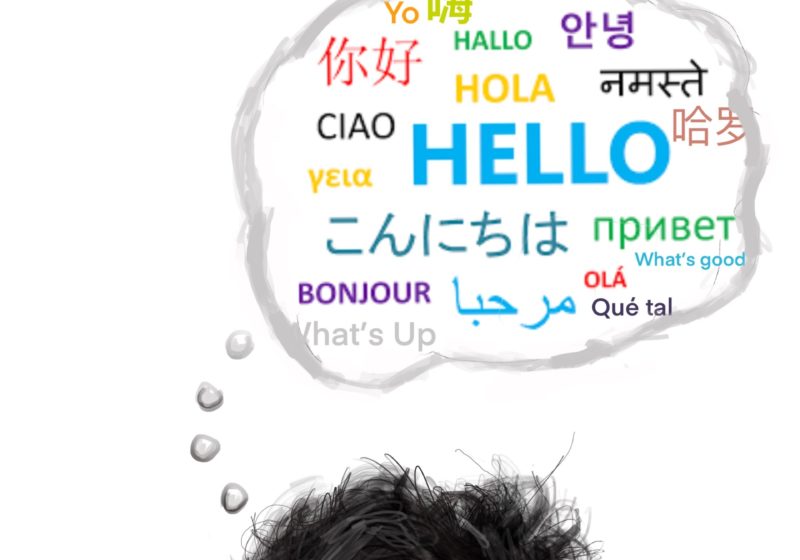What made my home unique to some, but very normal to millions of other Americans with immigrant families, was that English was rarely used, if at all. My family emigrated from China during their mid/late-20s, so naturally they exclusively enforce Chinese in our household. But for me, as a Chinese-American, my world at home was vastly different from all my other social spheres. At home, my thoughts are in Chinese, my words are in Chinese, and even my mannerisms are Chinese, a result of emulating my parents. However, this behavior doesn’t fit anywhere outside the confines of home.
Living in America, I befriend others — even other Chinese Americans — using exclusively English words, English thoughts, and American mannerisms. Outside of home, even speaking with my sister and cousins is almost exclusively done in English.
But what about when I am with other Chinese people? Not only do I worry about forgetting specific vocabulary words in Chinese, but I also worry that my syntax is different from my Chinese peers’, even if I’m comfortable speaking the language. After all, my Chinese speech and thoughts are based on my parents’ vernacular, which is different from the way people my age speak nowadays. Thus, I’ve grown to be afraid of communicating with my Chinese peers, in fear of being seen as even more different from them than I already am — as an American. Thus, even though I’ve grown comfortable with code switching between Chinese and English, I still wonder when I should be doing it.
A big problem with being active in so many worlds is not only the struggle to fit into one world perfectly, but determining when it’s necessary to speak a certain way in a shared environment.
If I have a problem about something going on outside of the family, I can’t go to my parents because I can’t perfectly describe everything I want to say in Chinese, while they can’t grasp the concept in English. When I have an issue at home, I can’t turn to my friends for support; they won’t be able to understand when I attempt to translate whatever happened at home from Chinese to English, hoping that those problems can be viewed in the same way to others — and they can’t. Instead, the frequent micro-miscommunications caused by code switching make it impossible for both sides to articulate what they really want when it comes to more complex topics.
Many people praise the benefits of being multicultural. I’ve been afforded the opportunity to meet people from diverse backgrounds, making me who I am today. But when it comes to connecting with them all, the extent to which code switching can work effectively is fairly limited. Instead, I’ve found that code switching where it may be unnecessary has alienated me from others more than it has afforded me the ability to connect with them.
Many people also claim that code switching anchors our cultural identity, binding us to the cultures that we’ve grown up in. But with the cost of preserving our clouded dignity come people who see you as too different, distanced through our differences rather than joined together through our similarities. This shouldn’t be the case. Although code switching is essential for basic communication within my different communities, practicing code switching in environments with people from various cultures other than my own does more harm than good. Especially in a country as culturally diverse as the United States, there is no need to estrange each other any more than we need to.
There is more to our identities than just the way we speak in shared multicultural settings. Whether it may be in school, in the workplace, or just hanging out with friends, an environment where we feel the need to change how we normally communicate is unproductive. I’m not claiming that code switching should be abolished — most of the time, we don’t have a choice of whether we should code switch or not. After all, code switching is what allows me to speak to my family, friends, teammates, co-workers, professors, hallmates, and everyone that I have met and will meet in the future.
However, feeling the need to code switch to appeal to certain cultures over others does not constitute better communication. Ultimately, even though code switching may help us connect with those within our own cultures, it pushes away those that aren’t. That is something that needs to change if we want to create the cohesive community that the United States hopes to stand for.


